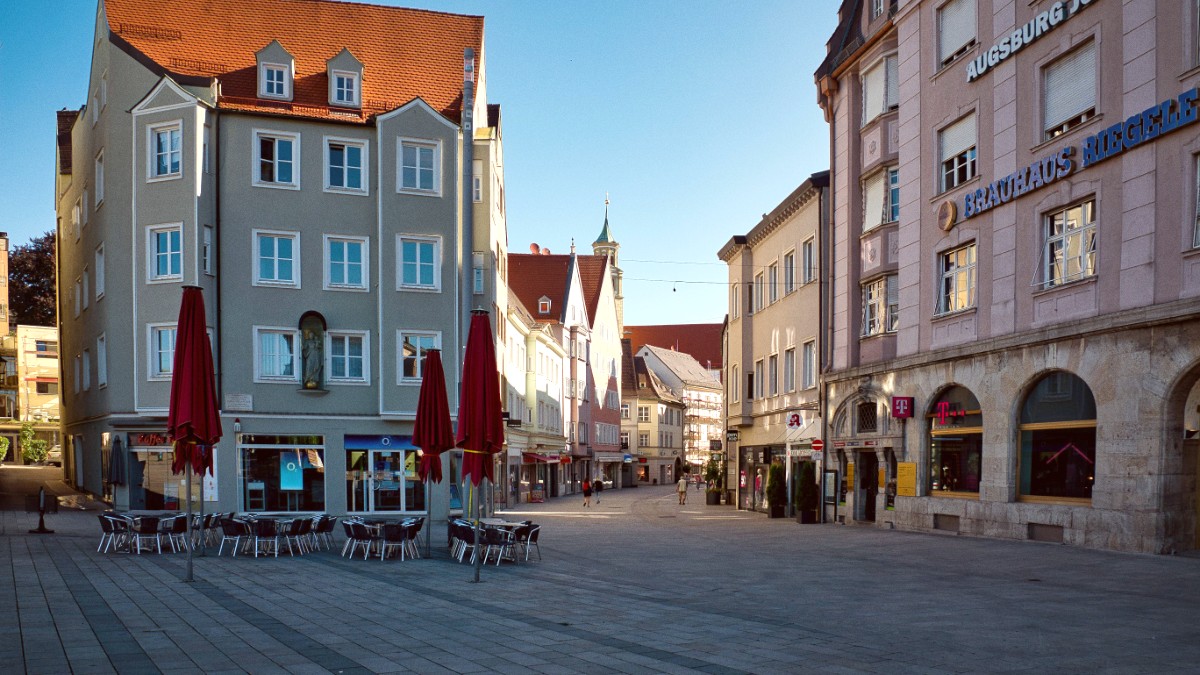
Bavaria, Germany
It is a destination that captivates, encouraging discovery and contemplation at every turn. Expect enchantment from its unique character and the many stories it holds.
Augsburg ranks among Germany's oldest cities, with origins tracing back to 15 BC when Roman emperor Augustus founded it as "Augusta Vindelicorum." This Roman foundation laid the groundwork for centuries of growth.
During the Renaissance, Augsburg reached its peak, becoming one of Europe's most influential economic and cultural centers. This period saw the rise of powerful merchant and banking families, most notably the Fugger and Welser families. The Fuggers operated a vast financial empire across Europe. Their wealth also funded social projects, like the Fuggerei, the world’s oldest social housing complex, still operating today.
Augsburg has a population of approximately 302,000 residents (as of December 31, 2023). This makes it Bavaria's third-largest city. The city covers an area of 146.93 square kilometers (56.73 square miles), including the historic city center, residential districts, and natural landscapes.
German is the official language. Standard German is universally understood. In tourist areas, major hotels, and larger restaurants, English speakers find staff who communicate effectively. The currency used is the Euro (€). Major credit and debit cards are widely accepted, though smaller shops often prefer cash.
Central European Time (CET), UTC+1; Central European Summer Time (CEST), UTC+2 during summer.
Mechanical engineering, logistics, environmental technology, information technology.
UNESCO World Heritage Water Management System, Fuggerei, Augsburg Town Hall with Golden Hall.
Approx. 302,000 residents.
146.93 km² (56.73 sq miles).
In 1530, the Augsburg Confession, a document of Lutheranism, was presented to Emperor Charles V in Augsburg. Later, in 1555, the Peace of Augsburg was signed here. This treaty granted religious freedom to princes within the Holy Roman Empire, allowing them to choose either Catholicism or Lutheranism for their territories.
Augsburg’s ingenuity in water management marks its historical importance. For centuries, the city developed an intricate system of canals, water towers, and fountains. This advanced system, which evolved from the Middle Ages through the Renaissance and into the industrial age, gained recognition as an UNESCO World Heritage site in 2019.
Exploring Augsburg means walking through these layers of history, from Roman settlements to the sites of Reformation debates, and seeing the lasting influence of its merchant princes and water engineers. The city balances urban development with natural environment.
Plan two full days in Augsburg to experience its main attractions without feeling rushed. This allows exploration of the Old Town, the Fuggerei, and the Town Hall, with time for local meals and leisurely strolls along the canals.
Augsburg experiences four distinct seasons, each offering a different atmosphere. Temperatures and precipitation vary throughout the year.
Always check the weather forecast close to your departure date to pack appropriately.
Mild temperatures 5-15°C (41-59°F). Moderate rainfall. Pleasant for walking and outdoor sightseeing.
Warmest months 15-25°C (59-77°F). Long daylight hours. Thunderstorms possible.
Cooling temperatures 5-15°C (41-59°F). Increased rainfall. Fewer crowds than summer.
Cold, with average temperatures -2-5°C (28-41°F). Snowfall is common, transforming the city. Icy conditions occur.
Travel insurance is a good idea for any trip to Germany. A comprehensive policy typically covers various situations.
Compare policies from reputable providers, confirming the coverage meets specific trip needs.
Doctor visits, hospital stays, and emergency medical evacuation if needed.
Non-refundable costs if your trip is canceled or cut short due to unforeseen events.
Compensation for lost or damaged belongings.
Several reputable providers offer travel insurance for international trips. Research options that fit your travel style and coverage needs.
Carry a small card with your accommodation address, emergency contacts, and any relevant medical information (allergies, conditions) translated into German.